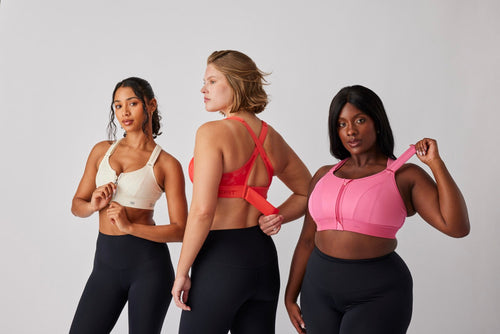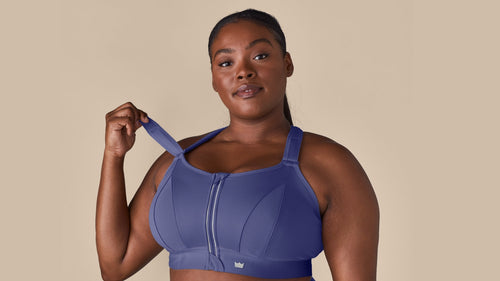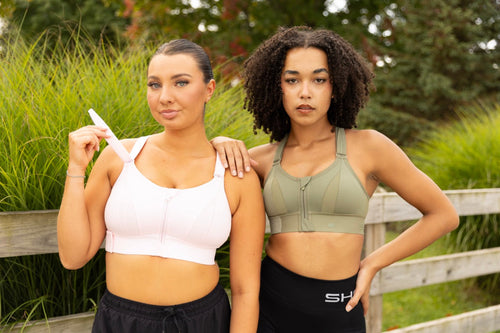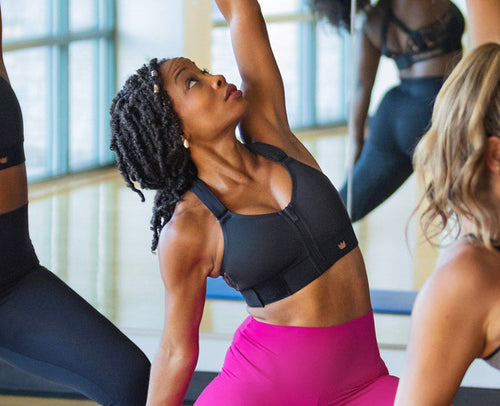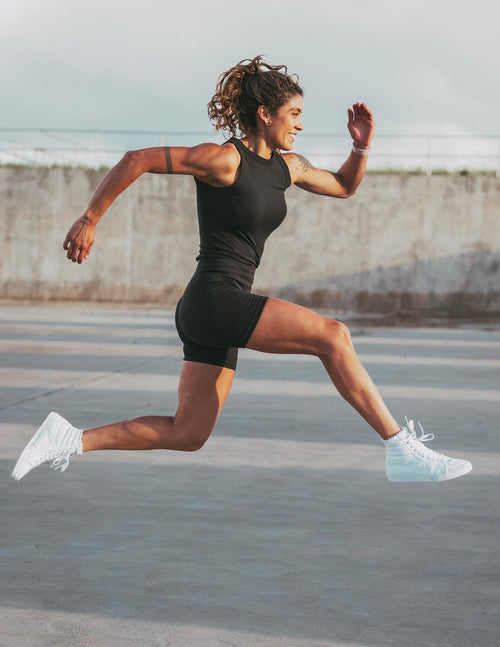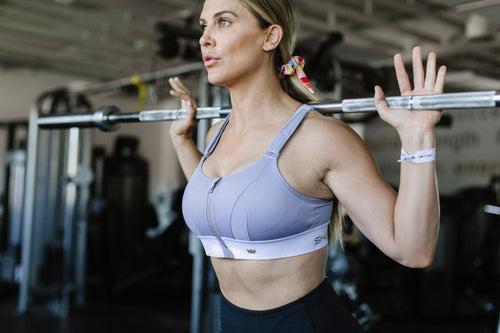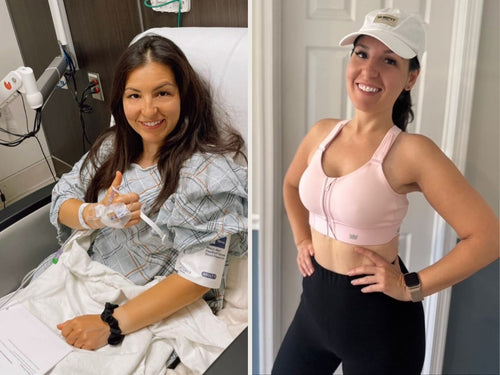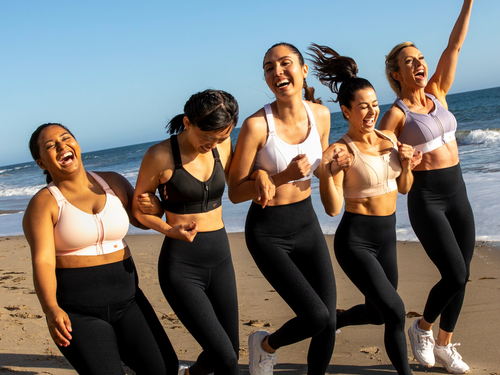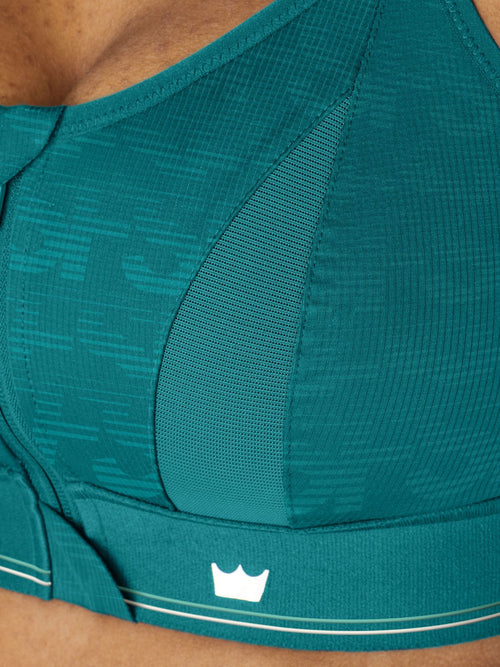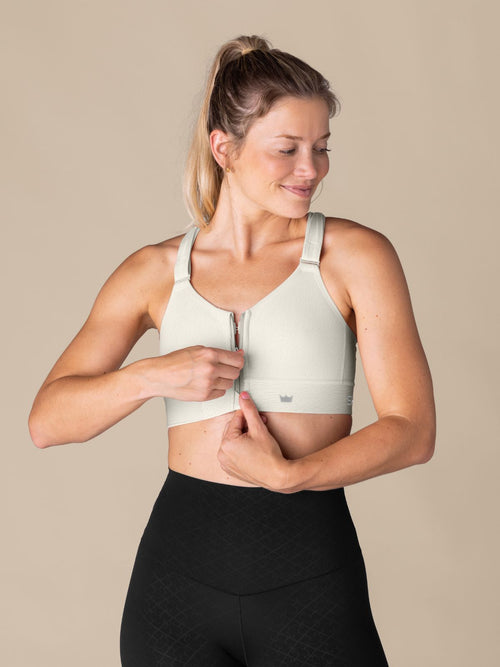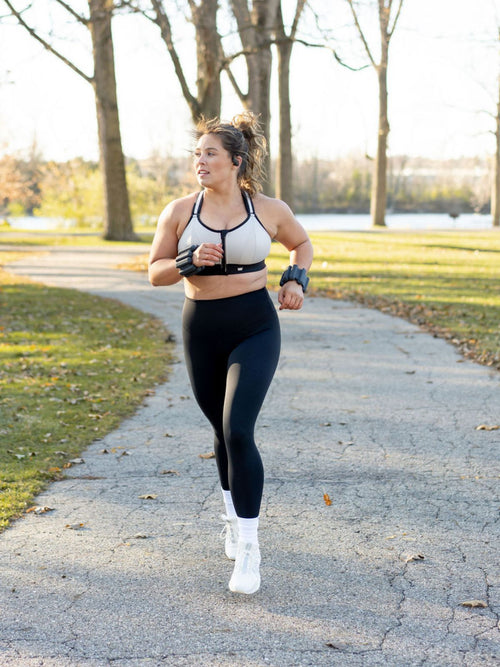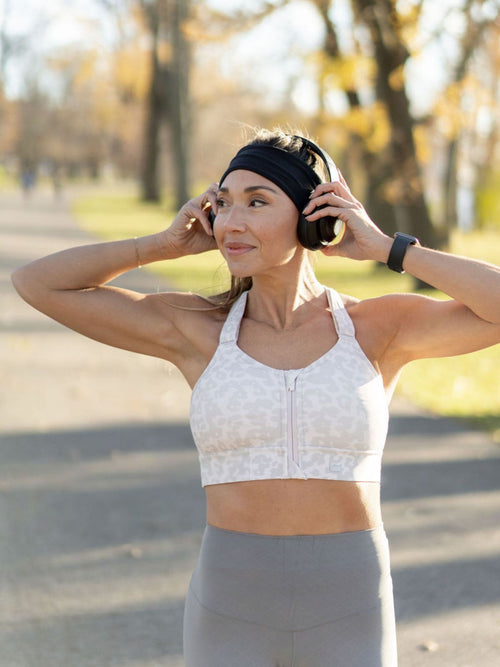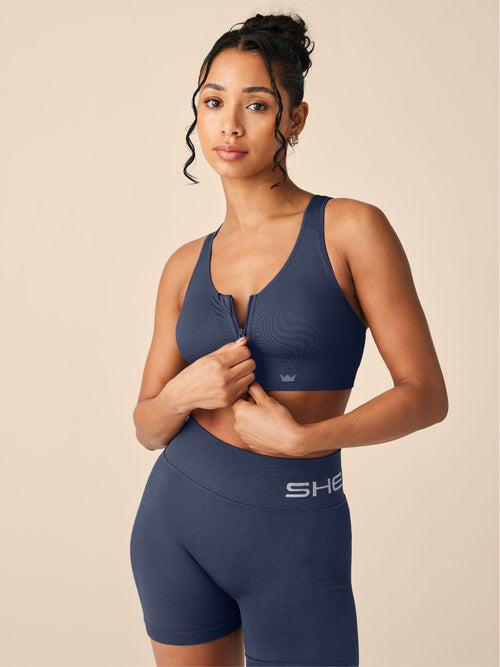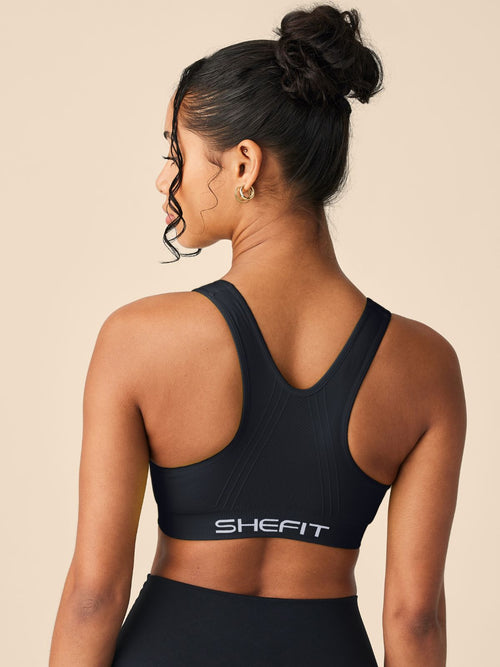Free shipping on U.S. orders over $99 Shop Now

We always love sharing stories of women in our Sisterhood who’ve overcome obstacles both literally and figuratively. Katy Greenbauer is an accomplished obstacle racer and at age 49, she isn’t slowing down. We chatted with her about how she began her racing, her journey into nutrition and personal training, and how she has taken the obstacle of her family tragedy into a life-long journey of spreading awareness to mental health.
SHEFIT: You’ve always been an active woman but you have found yourself in a very specific category of obstacle racing. They can be challenging, grueling, and scary. How did you end up getting into racing them?
Katy Greenbauer: A friend ran one and told me about them and thought it would be the kind of challenge that I would like. She was right. I was hooked right away! I loved it. It was crazy, challenging, fun, and different than anything else out there. And extremely rewarding. I ran the Warrior Dash for fun with a friend and then a few months later ran a Spartan Super. I ran that one alone because no-one would come with me because the distance was too long and the obstacles too hard. I didn’t realize how hard it would be, but I just kept pushing myself and ended up coming in 4th place in my age group. That was when I realized that this could actually become “my” sport.

SF: What kind of tip or advice would you want women to know about obstacle races? Or any words of encouragement you would want to pass on to someone on the fence about signing up for one?
KG: The world of OCR is an amazing balance of sportsmanship, competition, camaraderie, and support. If you sign up for the competitive waves, you are expected to complete the obstacles without help. But if you sign up for an open wave you can help each other over obstacles. If you are on the fence, sign up for the open wave. Even if you start alone, you will meet people along the way and you will not finish alone. It will be challenging but even if you only do one race, you won’t regret the feeling of accomplishment of completing the race.
SF: The races are all unique and have very specific challenges. Is it hard to find gear that can help you get to the finish line?
KG: There has definitely been some challenges in the past. Personally, I think the less gear, the better, so each choice is extremely important. Which shoes, pants, shirt, and sports bra are so important, especially on weekends with back to back races.
In the majority of races, you will be wet and muddy within the first 1/4 mile of the race, so finding the perfect fit is important to prevent chafing. I used to bring hospital grade anti-chafe ointment and slather it underneath my sports bras because, being short, I could never find a bra that fit me exactly right. I often used safety pins to adjust the straps because if it fight around my back, it would be too long in the shoulder straps. And taking a wet, muddy bra off also had it’s own set of challenges!

SF: How did you end up finding SHEFIT and what are your favorite features?
KG: I came across an ad for SHEFIT on Facebook and got so excited! Seeing the adjustable features was what really got me, but also seeing the front zip sealed the deal. I immediately ordered one and when it came I was not disappointed. It was so supportive, comfortable and completely adjustable to fit my unique body! I haven’t even touched any anti-chafing ointment since I started wearing SHEFIT sports bras. In the OCR/running world, that is really saying something! I was so impressed I actually wrote a letter to SHEFIT. That is the first time in my life I wrote a letter to a company thanking them for their product. It really is THAT BIG! It’s like finding a unicorn.
SF: You've gone onto becoming a Personal Trainer and Nutritionist. Where should people start when they are looking to get healthy first?
KG: People have the most success when they start with something they enjoy doing and it’s something that they can reasonably expect to sustain long-term. This goes for both diet and exercise. It’s ok to make big changes later on, but if you hate running and love bread and bananas, it would be unrealistic to start a keto-genic diet and sign up for a running club.
I also think it’s worth working with a personal trainer and/or nutrition coach when you are starting off. There is so much misinformation out there, it’s important to work with a fitness professional who knows the science of the industry and can tailor a program that meets your specific needs and goals. There is no “one size fits all” program. We all start with what works with the average person but there are always some changes that need to be made to customize each program for the individual. I think this is why so many people feel like failures and give up, they just don’t have the knowledge they need to make the necessary adjustments to reach their goals. A good, well trained fitness pro can help guide people through the process of reaching health and fitness goals.
SF: Besides helping people overcome fitness and nutrition goals, you've also had a platform for individuals dealing with mental health. You story is relatable and people were drawn to your open and honesty. How did your families tragedy effect your training?
KG: My 11 year old daughter’s death by suicide in 2015 completely derailed my training and competitive racing. I was at the height of my training and fitness level and I was at the highest level of racing I had ever achieved. After Gabby’s death, I held everything and everyone together for about 6 months and then I just started a slow spiral down into PTSD, anxiety, and depression. Unfortunately I just stopped training and racing altogether.
I was in a very dark place and I honestly didn’t think I would ever come back to even close to where I was before. But I found a great therapist whose specialty was family members of suicide loss. The first year was hard, the second year was even harder, but eventually it occurred to me that it really didn’t matter how valid my reason for being depressed was, ultimately I was the only person who could get myself out of it. It takes daily work. It’s like everything in life, it becomes easier with practice, so that’s the good news for those struggling with the same issues I have. To keep myself accountable to complete honesty with myself, I started a blog called Minus One. I was brutally honest about what our family was going through and how I was feeling. It was a journey through my grief and I found that sharing my weaknesses and vulnerability actually gave me strength and resiliency. It was cathartic to write and release into the world our struggles and our victories.
I also wanted to shine some light into the dark subject of depression, PTSD, and anxiety. There is a stigma attached to these conditions and I really wanted to be as transparent as I could about my personal experiences in the hope that others would feel empowered to seek help if they needed it.

SF: Mental health and fitness are directly related and has been proven time and time again to be beneficial. What are simple steps people can take to overcome their depressions, fatigue, or general lack of encouragement?
KG: This is so true and so hard at the same time. I especially struggled with this since once I did finally decide to start training and working out again, it became a trigger for anxiety and depression for me. It was so demoralizing. But I had made a promise to myself to just keep showing up on each day. I found a great trainer who was very patient with me and a very talented in bringing out all of my strengths, so it helped to rebuild my confidence in my physical abilities.
I definitely think finding a training partner or a trainer is a great way to get going. If you are accountable to someone else, it is often a great way to motivate you to keep going. But if that isn’t possible or available to you, don’t let that stop you. And that leads me to the next simple piece of advice, start. Just start doing something and just keep going. Keep showing up and being consistent with your fitness program. Obviously, I know this is so easy to say, and so hard to do, but the obstacles that are keeping you from working out are not in your way, they are the way to your goals. Overcoming those obstacles will give you the mental toughness that will help drive you to success.
SF: How would you describe your support network?
KG: I don’t think there are enough words to explain how impactful my support network has been. My husband, my friends, my family, and even strangers who have heard about our family have been so incredibly supportive and had such a positive influence on my life. When I was at my lowest, and when I am at my best, I continue to be awed and humbled by the people in my life that have shown up and continue to support and believe in me. Of all the things I have accomplished in my life, developing authentic relationships has proven to be my most valuable. They truly make me want to be a better human to live up to the love and kindness I have received.

SF: When people feel their age is against them, what would you like to say to them?
KG: Don’t. It’s never too late to achieve something new. I have clients as old as 92! Time will pass anyway. Today will become yesterday. You may as well do what you want to do with your life. Don’t use age as an excuse. If you made it this far, you’re probably too smart to fall for that excuse. Don’t sell yourself short. Just go for it. Or, on the flip side, if you feel too young; you’re never too young to start planning on becoming a badass in your later years! So practice being badass now!
Follow Katy on Instagram and check out her blog, Minus One. Find your unicorn in the Ultimate Sports Bra and take on new challenges, too!


